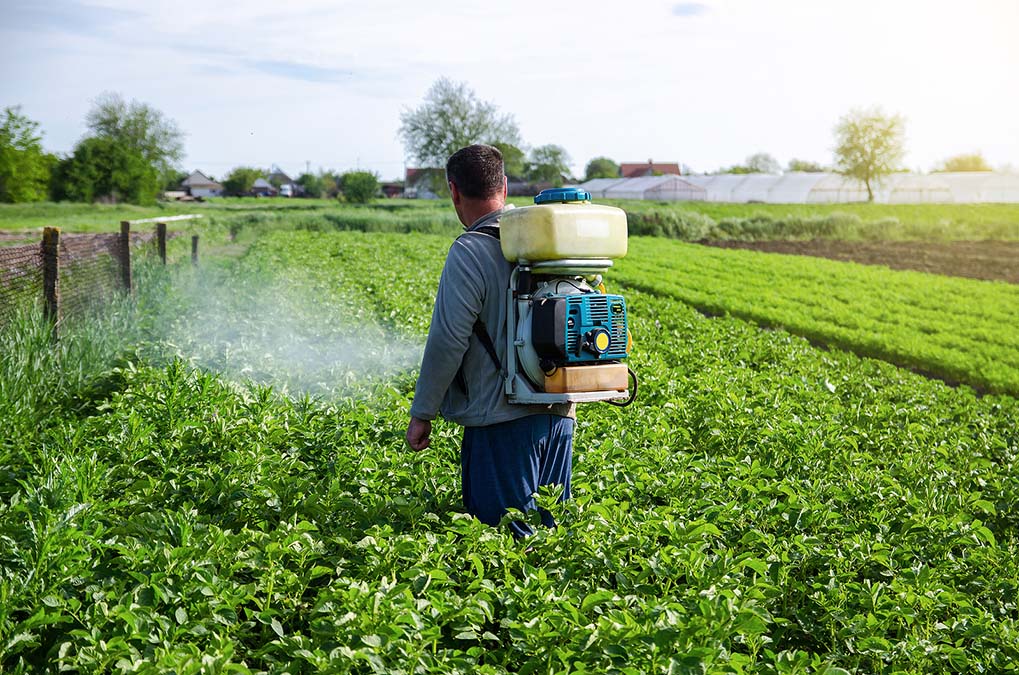 Fruits and vegetables are usually considered to be the healthiest foods you can eat.
Fruits and vegetables are usually considered to be the healthiest foods you can eat.
But a new study in the International Journal of Environmental Research and Public Health now reveals that chronic kidney disease (CKD) may be caused by exactly the vegetables we eat to stay healthy.
Not only that—it may also be caused by a walk in the park and other healthy activities.
Researchers have known for some time that agricultural workers tend to be at seriously high risk of CKD. The spraying of herbicides and insecticides and working with contaminated soil have been held responsible for this before.
But according to a new study from a team led by the University of Queensland, this cannot explain why CKD has become so common in the general population too.
After all, how many of us are really agricultural workers?
This leaves many cases of CKD completely unexplained. In fact, according to studies cited in their paper, cases with an unknown cause have been increasing even in those countries where people do not have typical risk factors like hypertension and diabetes.
So they began looking for a possible cause beyond the spraying of insecticides, working with contaminated soil, hypertension, and diabetes.
They decided to stick to the pesticide line of inquiry, since that has already been proven. But they chose to take one of the most common pesticides used far beyond agriculture to see if there was a relationship with CKD.
Malathion is an extremely common pesticide that is used to kill insects that attack fruits, vegetables, and even plants and shrubs in public parks and grass on sports fields. You can buy it everywhere and spray it in your garden at home.
It is used to kill mosquitoes in affected areas and to kill ticks and fleas on pets like dogs and cats. You have probably sprayed it around your own house to kill ants. It is even included in some head lice treatments.
Malathion is an organophosphate-based pesticide that kills organisms by damaging an enzyme in their bodies called acetylcholinesterase.
The only problem is that the human body and other mammal bodies also contain this enzyme, so malathion can poison us too.
So far, it is only licensed for widespread use because the amounts used are assumed to be too small to harm us.
The Australian researchers used data from 41,847 people collected by the National Health and Nutrition Examination Survey; they compared the kidney function of those who were and were not exposed to malathion.
They found that the risk of low kidney function was 26% higher in the exposed group than in the nonexposed group.
They did not find a relationship between kidney function and the herbicide 2,4-D, the pesticide 3,5,6-trichloropyridinol, or the pesticide 3-PBA, all of which work through different mechanisms.
Therefore, if you often spend time in public parks or on sports fields, inquire about whether they use this pesticide on the plants.
It is also the health concerns related to pesticides that have made organic fruits and vegetables so popular. If you cannot afford to buy organic, wash your vegetables carefully before you eat them.

 Overcoming IBD
Overcoming IBD Multiple Sclerosis
Multiple Sclerosis Banishing Bronchitis
Banishing Bronchitis Gum Disease Gone
Gum Disease Gone Overcoming Onychomycosis
Overcoming Onychomycosis Neuropathy No More
Neuropathy No More The Prostate Protocol
The Prostate Protocol Brain Booster
Brain Booster
 Ironbound
Ironbound
 Solution for Shingles
Solution for Shingles
 The Bone Density Solution
The Bone Density Solution
 The Ultimate Healing Protocol
The Ultimate Healing Protocol
 The Parkinson's Protocol
The Parkinson's Protocol
 The Chronic Kidney Disease Solution
The Chronic Kidney Disease Solution
 Overthrowing Anxiety
Overthrowing Anxiety The Fatty Liver Solution
The Fatty Liver Solution The Hypothyroidism Solution
The Hypothyroidism Solution
 The End of Gout
The End of Gout The Blood Pressure Program
The Blood Pressure Program
 The Oxigized Cholesterol Strategy
The Oxigized Cholesterol Strategy
 Stop Snoring And Sleep Apnea Program
Stop Snoring And Sleep Apnea Program
 The Arthritis Strategy
The Arthritis Strategy The Vertigo & Dizziness Program
The Vertigo & Dizziness Program The 3-Step Diabetes Strategy
The 3-Step Diabetes Strategy Hemorrhoids Healing Protocol
Hemorrhoids Healing Protocol The Erectile Dysfunction Master
The Erectile Dysfunction Master Weight Loss Breeze
Weight Loss Breeze The IBS Program
The IBS Program The Insomnia Program
The Insomnia Program The Migraine and Headache Program
The Migraine and Headache Program The Neck Pain Solution
The Neck Pain Solution The Menopause Solution
The Menopause Solution The Ejaculation Master
The Ejaculation Master The TMJ Solution
The TMJ Solution The Acid Reflux Solution
The Acid Reflux Solution The Fibromyalgia Solution
The Fibromyalgia Solution The Psoriasis Strategy
The Psoriasis Strategy